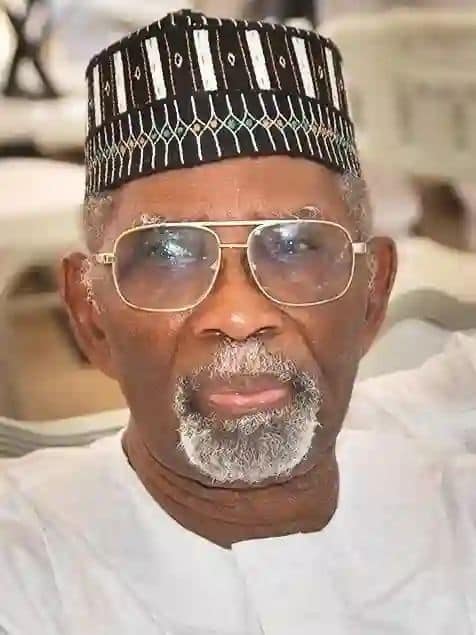Dr Alhassan’s book on Islamic influence in Ghana posthumously launched

Accra: A book authored by the late Dr Alhassan Mohammed, the first Muslim deputy governor of the Bank of Ghana (BoG), has been posthumously launched.
“Dare to Say: The Islamic Influence in Ghana” is a 180-page book made up of four sections and 27 chapters that delves into issues relevant to the Ghanaian Muslim community.
It addresses issues such as the history of Islam in Ghana, the spread of Islam among various ethnic groups, Muslim lifestyles, citizenship, Muslim education and Muslim family values, which bordered on marriage, divorce and polygamy.
The book contains speeches addressed to international and local audiences on different occasions.
It also consists of delivered lectures and media publications, including rejoinders.
In his foreword to the book, Dr Mohammed Ibn Chambas, African Union High Representative for Silencing the Guns, said the author remained a shining light in the Muslim community due to his humility and determination.
Being one of two sons of a driver to a chief justice, Dr Ibn Chambas said Dr Alhassan had remained humble and connected to his community despite being at the pinnacle of his career.
“He inspired so many others, including my humble self. Dr Alhassan was always a mentor, and his guidance, words of wisdom, advice and encouragement, many of us have followed,” he said.
During the book review, Dr Haruna Zagoon-Sayeed, a lecturer at the University of Ghana, observed that most academic work on Islam in Ghana had been done by outsiders who had little appreciation and connection to the subject matter.
He said, therefore, that the book, which was written in simple language, was an essential academic material, as it provided a different perspective and in-depth knowledge on the subject matter of Islam in Ghana.
The first copy of the book was auctioned for GH¢30000.
Proceeds from the book sale are to be used to complete a mosque and learning centre project at Mataheko in Accra, which was initiated by the author.
Dr Alhassan, a diplomat and renowned economist who died on Thursday, August 8, 2024, after a protracted illness, was born in 1932 in Adabraka in Accra.
He started his Islamic education under scholars such as Mallam Gajere, Mallam Albarka and Mallam Sharubutu.
He began secular education at O’Reilly Primary and Africa College before getting transferred to Accra Royal School for his Standard 7 certificate.
He pursued secondary education at Accra Academy and St Augustine’s College for his sixth form.
Upon completion, he went to the University of Ghana, where he pursued a Bachelor of Science with Honours in Economics.
In 1951, he went to the Soviet Union to undertake a specialist course in social economics and banking at the Kyiv Institute of National Economy, where he obtained a candidate of economics degree, an equivalent of a PhD.
He also undertook an IMF financial analysis course in Washington and a postgraduate doctorate at Yale University.
He was the director of the Research Department of the Bank and rose to the position of deputy governor from 1982 to 1986.
He also acted as the BoG Governor between 1981 and 1982.
Upon retirement in 1987, he was appointed as Ghana’s Ambassador to the Kingdom of Saudi Arabia for two years.
Dr Alhassan was an active member of the defunct Crescent Club, chairman of the Ghana Muslim Community and a key contributor to the planning and construction of the Abossey Okai Central Mosque.
He was the first chairman of the Hijra Club, a Muslim humanitarian organisation that undertook initiatives such as the development of the Hijra school near Spintex and the scholarship for hundreds of young people.
Key among his intellectual works was a 2010 book titled “Determination and Conflict in a Muslim Society: Abossey Okai Central Mosque”.
The book sought to address misconceptions surrounding the National Chief Imam position in Ghana.
Join our whatsapp channel for all the latest updates.
For news coverage, article publication, and advertisement, send an email to ghanaianminaret@gmail.com or reach us via whatsapp, telegram or phone call on +233266666773.

